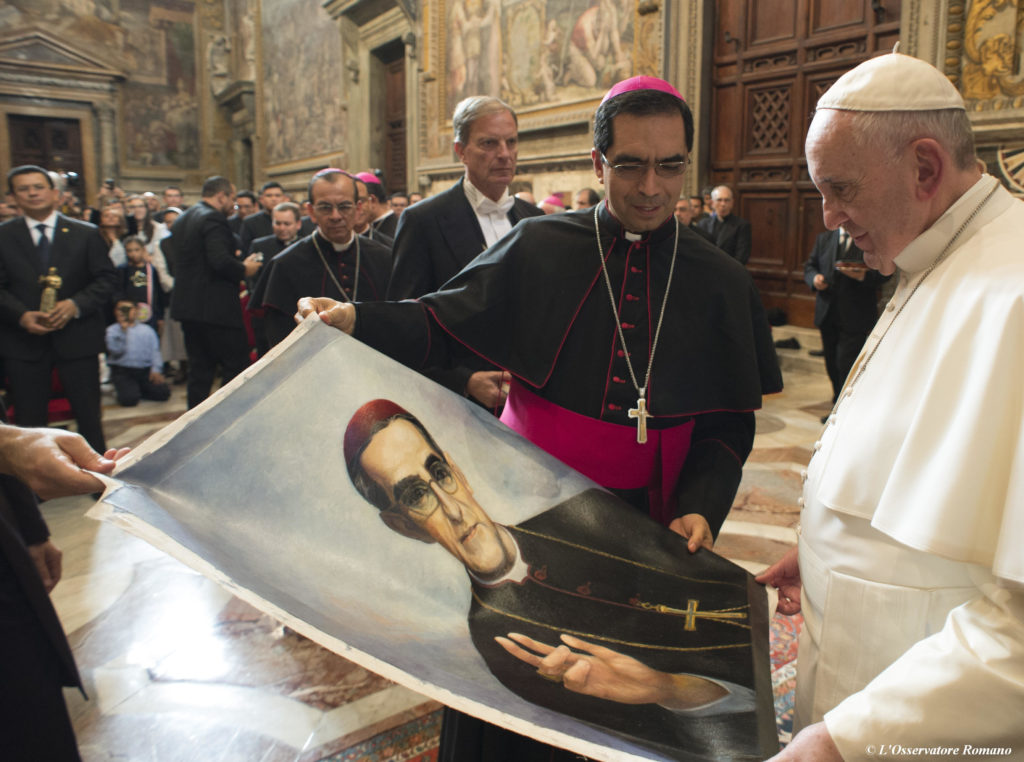Pope Francis will canonize Blessed Paul VI and Blessed Oscar Romero, along with others, in Rome on October 14. The postulator of the cause, Bishop Rafael Urrutia, affirms in this article that the martyrdom of Blessed Oscar Romero in El Salvador was "the fullness of a holy life".
Text - Rafael Urrutia
Once again, Pope Francis "shocked the world" with the signing of two decrees allowing the canonization of Pope Paul VI, beatified in October 2014; and of Monsignor Óscar Arnulfo Romero, beatified on May 23, 2015.
Both decrees, signed on March 6 of this year, recognize two miracles obtained through the intercession of Paul VI and Blessed Romero, the last obstacle to full sanctification, juridically speaking; and thus, from the canonization ceremony of October 14, both will be called "saints".
By following a procedural ether, the servants of God become declared saints. by the fame of sanctity of those who lived the virtues in a heroic manner (as in the case of St. John Paul II, Blessed Paul VI and St. Teresa of Calcutta) or for the fame of martyrdom of those who, in an act of immense love for Christ, offered their lives for the defense of the faith. (as in the case of the child Saint Juan Sanchez del Rio or Monsignor Romero). But both are built on the rock of holiness.
In both cases, holiness is lived, although martyrdom requires a particular call from God to one of his children, a choice that God makes for very few of his children, because "the martyrdom is a gift that God grants to a few of his children, so that they may become like their Master, who freely accepted death for the salvation of the world, resembling him in the shedding of his blood as a sublime act of love. That is why the greatest apology of Christianity is the one given by a martyr as the ultimate testimony of love.r (cfr. Lumen Gentium, 42).
In a way, I must thank the detractors of Monsignor Romero and the euphoria of those who love him for having helped me to internalize his martyrdom and to understand that, although holiness and heroic virtues are not required in the life of the servant of God, that martyrdom in him is the fullness of a holy life. I want to say that God chose the Blessed for his martyrdom mission because he found in him a man with an experience of God, or in the words of the Gospel, "found Oscar, full of grace".
Among the constitutive elements of the juridical concept of martyrdom, the causal and formal element is the most important, because that which makes a death qualifiable and qualified as martyrdom is, specifically, the cause for which the death is inflicted and accepted. This is why St. Augustine has been able to express laconically: "Martyres non facit poena sed causa". Therefore, Monsignor Romero is not a martyr because he was assassinated, but because of the cause for which he was assassinated.








